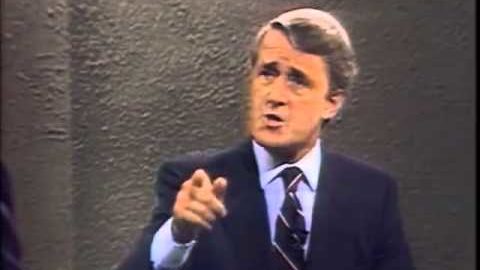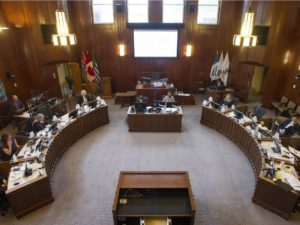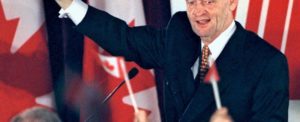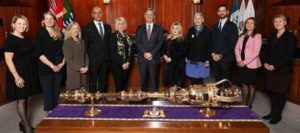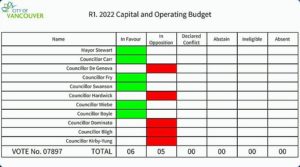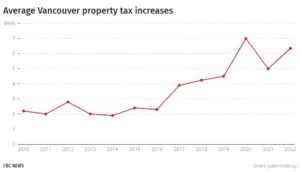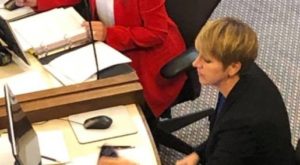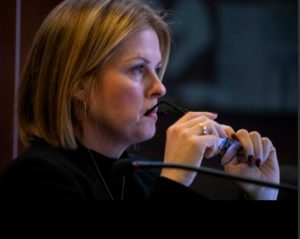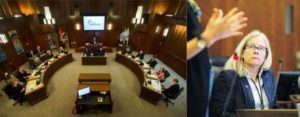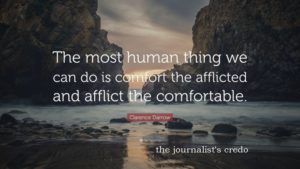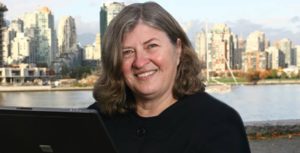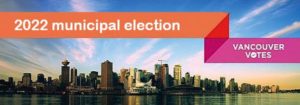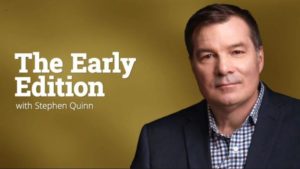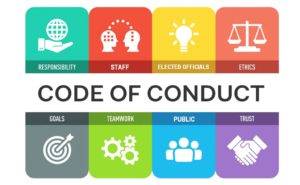
A Code of Conduct is a set of rules around behaviour and comportment that serves to define, in the instance today, the political arena of municipal governance and the culture of the institution, that seeks to clarify the core values and principles on display at City Hall, the Code of Conduct setting out to define the expected conduct of elected officials, staff, and all those citizens who present to City Council.
Having a Code of Conduct provides elected officials, city staff, and citizens a structure to follow, reducing the potential for untoward conduct when issues of contention arise, in order that there should be no ambiguity when it comes to Code of Conduct expectations, should lines of conduct be blurred, or rules broken.
As such, a municipal Code of Conduct sets the benchmarks for behaviour at City Hall — and in Vancouver’s case, Park Board — for all those who are involved in civic governance, elected officials, staff, and citizens, a guideline set for all to live up to.
During the final term of governance for the Vision Vancouver administration at City Hall, public demonstrations became a common feature, with — on several occasions, increasing frequency and deliberate intent — members of the rightfully aggrieved public taking over Council Chambers at Vancouver City Hall, ejecting the Mayor and City Councillors, and senior members of city staff from the Chambers.
Meanwhile, over at Vancouver Park Board — the only one of its kind on the continent — avid follower of all things Vancouver Board of Parks and Recreation, the late Eleanor Hadley, who attended each and every meeting of Park Board, was calling out the Park Board Commissioners, and on this particular late autumn evening in 2015, the Vision Vancouver Park Board Committee Chairperson, Sarah Blyth.
Whether it was the late Jamie Lee Hamilton — the self-styled Queen of the Parks — or Ms. Hadley, repeatedly and often throughout the conduct of Park Board meetings, both would call out the Commissioners, the stewards of Vancouver’s parks and recreation system, while they were conducting Park Board business.
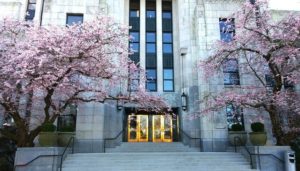
At Vancouver City Hall, Park Board General Manager Malcolm Bromley met with Vancouver City Manager Sadhu Johnston, with the two senior staff deciding that the drafting of a Code of Conduct was in order. In late 2016, the Park Board was the first civic body to adopt an official — and strictly enforced — Code of Conduct.
Mr. Johnston spoke with the then Vision Vancouver Mayor, Gregor Robertson, about Council adopting their own Code of Conduct, but the idea was put off. Only when a new Council was elected in late 2018, did City Manager Sadhu Johnston once again raise the spectre of the adoption of a Code of Conduct at Vancouver City Hall, an idea newly-elected Mayor Kennedy Stewart went on to champion.
Here’s a bit of background on the adoption of a Code of Conduct at City Hall.
“In response to a Council resolution in late 2019 that asked City staff to review and update the City’s code of conduct, staff undertook an analysis of the current code.
Based on this review, staff identified shortcomings in the current Code of Conduct and recommended that a new code of conduct be drafted for Council and Advisory Committees, separate from the code of conduct that applies to City staff.
In response to legislation enacted in the Provinces, municipalities across Canada have recently enacted or revised their Codes of Conduct and retained independent ethics advisors. British Columbia does not have any requirements for a municipal Code of Conduct, or the implementation of an Integrity Commissioner.”
Arising from the fact that Vancouverites elected an almost wholly novice Council, who took a long while to get their feet underneath them, and arising from a packed Vancouver City Council agenda that invariably proved contentious and was frought with hours long amendments to amendments to amendments, and the subsequent onslaught of the COVID-19 pandemic, it took two full years for Vancouver City Council to adopt a new and much revised Code of Conduct.
On January 21, 2021, Council adopted a new and revised Conduct of Conduct.
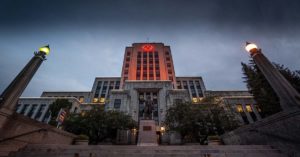
Vancouver City Hall and That Damnable Code of Conduct
Janet Fraser was elected as Chairperson of the Vancouver Board of Education this evening. #vsb39 https://t.co/QZtQnhRN8R pic.twitter.com/k7aoJbButU
— Vancouver School Board (@VSB39) October 31, 2017
When on October 30, 2017, Green Party of Vancouver Board of Education trustee Janet Fraser was elected by her fellow trustees as Vancouver School Board Chairperson, Dr. Fraser set out as her …
“First priority is to build the culture of respect and then we must address the teacher recruitment and retention challenges that we’re seeing here in Vancouver. There are challenges across the province, but I think they’re particularly acute in Vancouver as we have additional challenges with affordability and teachers leaving, choosing to leave to work in other districts.”
VanRamblings celebrated Dr. Fraser’s tenure as Board of Education Chair.
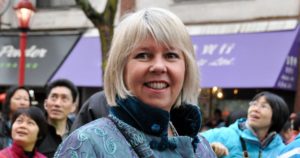
The next year, following the 2018 Vancouver municipal election, when Dr. Fraser’s Green Party colleague Adriane Carr was re-elected to a third term in office, and was appointed by Vancouver Mayor Kennedy Stewart as Chairperson of Council’s powerful Committee on Policy and Strategic Priorities, Ms. Carr decided to take a page from Dr. Fraser’s ‘book’ on how to run a reasonable and respectful civic meeting.
In her newfound role as Chairperson of Council’s Committee on Policy and Strategic Priorities, here’s how Vancouver City Councillor Adriane Carr set about to interpret Vancouver’s old, and then new, Vancouver City Hall Code of Conduct …
-
-
- Vancouver City Councillors will treat each other with the utmost respect. A Vancouver City Councillor may not impugn, or be seen or heard to impugn, the integrity of a fellow Councillor, nor employ clever use of language, nor tone of voice, nor any other untoward mechanism of engagement that might be seen to bring disfavour to a member of Council. At all times in the Council Chambers, Councillors must interact with their fellow Councillors in an always respectful manner.
- Failure to interact with one’s fellow Councillors in a manner consistent with ‘accepted norms’ of good governance, will see the imposition of sanctions on such member or members, ranging from the issuance of an order of an immediate apology to the aggrieved Councillor, to an ordered withdrawal from Chambers, and / or the laying of a formal Code of Conduct complaint against the offending Councillor.
- No Councillor will ask a question of a staff person presenting to Council that would seem to hold the staff person in disrepute. Councillors must not, and will not, ever question staff information or data presented to Council. Should a Councillor present information and data contrary to the information and data presented by staff, that Councillor will be sanctioned by the Chair, have their microphone shut off, and be chastised by the Chair for engaging in untoward and unparliamentary conduct, or be ordered to withdraw forthwith from Council Chambers.
- Citizens presenting to Council must observe the Code of Conduct as laid out for Councillors, and must not ever present information contrary to the information and data presented by staff. Citizen conduct must be respectful, whether addressing the City’s professional staff, or elected members of Council. Citizen failure to adhere to the Code of Conduct will result in the citizen’s address to Council being terminated, their microphone shut off, and their removal from the Council Chambers.
- Note. Only the Mayor will be saved harmless from the above provisions of Vancouver City Hall’s Code of Conduct.
Vote coming up on Streamlining Rental
I just heard @kennedystewart “impugn motive”
to any councillor who votes no …
Code of Conduct = total joke#vanpoli— Joseph Jones (@jonesj) December 15, 2021
Thus this term of Vancouver City Council, none of the past entertainingly raucous engagements of Councillors with one another — Melissa De Genova or Andrea Reimer’s in-Council ‘attacks’ on one another that defined Vision Vancouver’s final term in office, nor COPE Councillor Harry Rankin’s cleverly infamous attacks on his Non-Partisan Association counterpart, George Puil, which was good-natured theatre of the first order, allowing both Councillors to make their respective points to maximum effect for public consumption and erudition — was countenanced.
Instead at Vancouver City Council this term Vancouverites seem to have elected a mealy-mouthed, ‘go along to get along’ contingent of City Councillors who appear, for all the world, to be deep in the pockets of staff, who themselves — in some good measure — seem to be ‘in the pocket of’ or at least beholden to the developers who contribute hundreds of millions of dollars in Community Amenity Contributions to City Hall that, in effect, pays the salaries of senior City Hall staff.

A couple of weeks ago, VanRamblings commented on Vancouver City Councillor Melissa De Genova, in a headlined column titled #VanPoli | Melissa De Genova | Fighting for You on Vancouver City Council, where we wrote …
During the current term of office Councillor De Genova has transformed from a fighter into a pussy cat, a ‘can barely stand on her legs’ kitten.
These past three years, what has happened to Vancouver resident champion and fighter for all that is right and good, challenger of her opposition colleagues, and ruthless yet still humane Council combatant, a woman who takes no truck nor holds any prisoners, the Melissa De Genova who calls out dissembling, self-righteous virtue signaling nonsense when one opposition Councillor or other makes a statement so ludicrous and offside that it all but demands a response from Vancouver’s warrior City Councillor.
The answer, obviously, is quite clear: Councillor Adriane Carr’s and Mayor Kennedy Stewart’s anti-democratic interpretation of Vancouver’s damnable Code of Conduct, that serves at all times to limit debate at Council, the questioning of staff, and squelch many of the community voices who regularly present to City Council.
-


